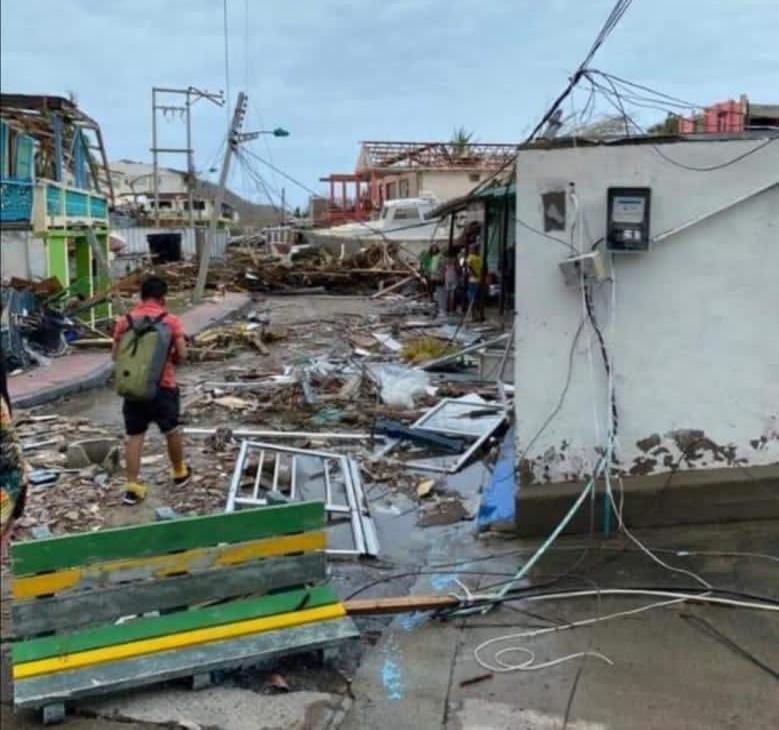
Some people don’t read, some do: so what?
Faye Griffiths stirs up debate as she wonders what can really be read into reading statistics in Colombia
There was an interesting article in The Guardian this week. Apparently, a recent study has gone some way to proving that the trauma experienced by Holocaust survivors was passed on genetically to their children and even their grand-children. That doesn’t mean that they were naturally affected by being raised by traumatised parents, but that their genetic make-up was physically altered. It’s not dissimilar to the idea behind the Peruvian film about Los Senderos, ‘La Teta Asustada’ where a disease is transmitted through the breastmilk of women who were abused or raped.
After reading it, I didn’t give it much more thought until I was privy to an overheard conversation between foreigners in Colombia about one of the topics de jour (after the price of the peso, which a lot of foreigners seem to be taking as a personal insult). The other topic was, of course, why Colombians don’t read, or some variation on this.
Now it’s a well-documented fact that Colombia is a low-reading country, and that figures have dropped in recent years to an average of less than two books read per Colombian citizen per year. When such statistics are published, there are lots of different ways of responding. My first reaction was one of surprise. Nearly all of my close Colombian friends put me to shame with their voracious reading appetites and their superior knowledge of literature from my language or culture. However, most of my friends are school teachers or academics or students, so you’d likely expect that.
Then, when you examine the situation in further detail, the low-reading culture is hardly surprising. Large parts of the country are still agricultural, for starters. And I’ve never seen a non-religious bookshop in a small town I’ve been to here. But then if you do live in the city – Colombia has a high ratio of libraries to people, the second highest in Iber-America – there are still factors which clearly impede the uptake of reading. These reasons are so blindingly obvious that they hardly need to be stated here: books are relatively expensive, it’s not safe or practical to read on public transport in major cities, people of all social backgrounds work long hours, leaving little time for indulgent leisure pursuits, and public education is so under-resourced that the necessary formation and support of reading habits in childhood is probably impossible in most district schools.
One could obviously counter all of these arguments by giving examples of countries with similar socio-economic structures where average book-reading is considerably higher. Perhaps another factor is the Escobarization of Colombian culture in recent years. It’s now clear that education isn’t the only means to creating a more comfortable life with more options for the future. The same thing could be said for the British working-class in the post Baby-Boom generation; social elevation was suddenly possible through other means and the value of education thus fell by the wayside.
But the problem with all of the above arguments is that they come back to us – foreigners, I mean – looking for justifications for a country being poorly read. This is what reminded me of the Holocaust article. According to the world culture index, neither Britain nor the US are in the top 20 readers in the world. Sorry Canadians, Australians and Irish, but you didn’t cut it either. So if we say that these nationalities comprise the majority of expats in Colombia opining on these matters, why are we so hung up on it when we aren’t even great examples of voracious readers ourselves? Could it be that in our genetic make-up we are still hard-wired to consider ourselves culturally superior? Do we still believe that we have some missionary role to deliver to these ‘semi-literate’ people?
Or is it simply the case that we are so comfortably accustomed to being able to pass unchallenged judgements on our host culture that we don´t consider how presumptive or possibly offensive our throwaway comments can be?
Listening to many a randomly-selected conversation between foreigners in Colombia, you could prove this without doing a scientific study. We seem to consider it our fundamental right to criticise everything from food to transport to reading levels. But we don’t open the debate up very much to look at our part in any of this, to examine how history has favoured certain cultures and the complex issues involved in examining cultural practices. And again, even if we do, we find ourselves inevitably pulled back towards some sort of justification or explanation, which is usually rooted in our latent prejudices.
One reaction I’ve never heard when the (cue 1950s BBC accent) ‘These people, they don’t read’ kind of conversation comes up, is: so what? Of course reading is a beautiful pastime. There’s an anonymous quote about nothing bad ever coming from too much reading or dancing. As long as we don’t read too much into that, it’s true on a basic level. (I know, the whole Hitler reading Nietsche thing could be used here). But if reading isn’t your thing, and as long as doing horrible things to animals or people isn’t either, that’s also fine.
If you make your living through education or some connection to the written word, then it isn’t acceptable to say you never read. But if you make no claim as an intellectual and you choose to interpret your existence through, let’s say, listening and moving to cacophonous Vallenato tunes, or even through watching soap-operas, well, live and let live (and interpret). It’s time we stopped giving Colombians, and anyone else who’s not a big reader, a hard time about something which is a personal choice.
If you understand the pleasure and sanctity of reading, then good for you. But if you truly know it, then you know that quality is more important than quantity. Reading one book a year which you thoroughly absorb, love, devour and which has some private impact upon you as a person is more important than meeting quotas. My ex once told a group of my friends in the pub that he’d read only two books since leaving school (he was pushing 30 at the time). One was ‘The Beach’, which I’d bought him, and the other was Alan Carr’s ‘How to Quit Smoking’, but he had – he implored – thoroughly enjoyed both. I cringe-laughed at that moment, but with the benefit of time I can see how unimportant it was. And for all the hundreds of books I have read, if or when the apocalypse comes, my money would be much more on his chances of survival than mine.
So, foreign uninvited critics in Colombia, I would say this: the next time you enter into this type of debate, can you keep the “so what” question in mind? Or at least ask what ingrained prejudices you have that mean the reading thing irks you so much. But if it really still bothers you terribly that you are resident in a low-reading nation, why not go to the nearest libreria and buy a book for the Regalo un libro es mi cuento campaign? Then you can at least feel that as you espouse an opinion on this matter, you have done something to help, rather than just repeat some under-examined, dismissive and ultimately, snobby criticism.
Literary SeptemberBy Laura Sharkey Bogota’s parks, libraries, educational establishments and cultural spaces will be home to ‘Literary September’ this month. Planned events include author readings, film showings and writing workshops. Authors who will participate in various events throughout the month include Brazil’s Ronaldo Correia de Brito and Argentinian Federico Falco. Bogota’s Digital Library will also have a special program every Thursday in September, where books, videos, music, photographs and maps will be specially selected to show Bogota from a range of various perspectives. In a related development, various ministries, the Colombian Book Chamber, publishing houses and bookstores around the country came together in August to launch the campaign ‘Regalar un libro es mi cuento’, roughly translated to ‘to give a book is my story’ which seeks to give all students in public institutions throughout the country the opportunity to read a book. |
By Faye Griffiths




